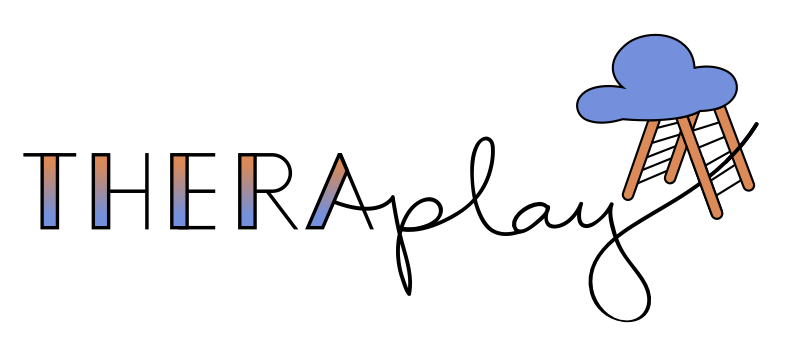Enlarged Tonsils and Adenoids in Children: What Parents Need to Know
At TheraPlay LA, we know many families have questions about enlarged tonsils and adenoids. These structures are tiny but mighty—and when they become enlarged, they can cause big problems for kids.
Let’s talk about what tonsils and adenoids do, why they get enlarged, signs and symptoms to watch for, and how treatment (including surgery) can help your child feel better, sleep better, and thrive.
What Are Tonsils and Adenoids?
Tonsils are two soft tissue masses at the back of the throat. Adenoids are similar tissue higher up behind the nose.
Both are part of the immune system. They help fight germs that enter through the mouth or nose, acting like guards that catch infections early.
In young children, tonsils and adenoids are especially active because kids are building immunity. It’s normal for them to be somewhat large in early childhood, but sometimes they become too enlarged or chronically inflamed.
Signs and Symptoms of Enlarged Tonsils and Adenoids
How do you know if your child’s tonsils or adenoids might be too big?
Look for these common signs and symptoms:
Hyperactivity
Irritability/Poor emotional regulation
Chronic nasal congestion or “stuffed nose” despite testing negative for allergies
Loud snoring
Difficulty swallowing certain foods or selective eating
Drooling past toddler years
Restless sleep or frequent waking
Frequent sore throats or tonsillitis
Mouth breathing—especially at night
Pauses in breathing during sleep (sleep apnea)
Changes in speech (nasally or muffled voice)
Daytime tiredness
If you notice several of these symptoms, it may be time to schedule a discovery call with us or talk to your pediatrician or ENT (ear, nose, and throat) specialist.
How Can Tonsils and Adenoids Become Inflamed?
Tonsils and adenoids get inflamed when they’re fighting infection.
But they can also become chronically enlarged because of:
Repeated infections (tonsillitis, sinus infections)
Allergies causing nasal congestion
Chronic mouth breathing (breathing through the mouth all the time)
It may seem difficult to believe that mouth breathing can cause tonsils and adenoids to become enlarged, but when kids breathe through their mouths instead of their noses, inhaled air bypasses the filtration system in the nose. Essentially, children begin eating germs. And the first thing that air comes in contact with? The tonsils and adenoids, which try to prevent the spread of infection to the rest of the body by working overtime.
In addition to this constant stream of bacteria, the tissues in the throat and nose dry out and become irritated because inhaled air isn’t being humidified by the nose. This can lead to swelling, making tonsils and adenoids even bigger— and creating a cycle that’s hard to break.
How Do Enlarged Tonsils and Adenoids Impact Feeding?
Parents are often surprised that airway issues can affect feeding, but we see it more often than you’d expect!
Enlarged tonsils and adenoids can make eating harder by:
Triggering gagging or choking on certain textures
Making swallowing uncomfortable or slow
Reducing appetite (if swallowing is hard or painful)
Encouraging pocketing food in the cheeks to avoid swallowing
Leading to picky eating or food refusal
As speech and occupational therapists trained in feeding therapy, we often see these feeding challenges in kids with airway issues. If your child is drawn to soft and/or cold foods, there’s a chance their limited diet may be the result of discomfort. Addressing the underlying airway problem can make feeding therapy much more effective and can naturally broaden your child’s diet.
How Do They Impact Sleep and Behavior?
Sleep is one of the biggest areas affected by enlarged tonsils and adenoids.
Poor sleep quality affects behavior. Kids may show:
Irritability or mood swings
Trouble focusing in school
Hyperactivity (sometimes misdiagnosed as ADHD)
Learning challenges
When the airway is blocked, it impacts sleep. Kids may:
Snore loudly most nights
Struggle to breathe (sleep apnea)
Wake frequently or sleep restlessly
Wet the bed beyond typical potty-training ages
Feel tired during the day
Many parents think their child’s snoring is harmless without realizing it’s impacting their child’s sleep, development, and behavior.
Treatment Options for Enlarged Tonsils and Adenoids
If enlarged tonsils and adenoids are mild, doctors may recommend:
Watchful waiting to see if the child grows out of it
Allergy treatment to reduce nasal congestion
Nasal sprays or medications to manage inflammation
Myofunctional therapy to improve nasal breathing
For kids with severe symptoms—like sleep disordered breathing, behavioral or attentional challenges, frequent infections, or feeding challenges—surgery is often recommended.
How Surgery Can Help
Tonsillectomy (removing tonsils) and adenoidectomy (removing adenoids) is one of the most common pediatric surgeries.
Benefits of surgery can include:
More restful sleep, leading to improved self and emotional regulation and attention
Easier breathing through the nose
Reduction in or resolution of sleep apnea episodes
Improved feeding and swallowing, including expanded diet
Fewer throat infections and colds
Better behavior and attention during the day
Improved overall quality of life
Many parents see a dramatic change after surgery. As clinicians, we often see kids who were tired, cranky, aggressive, or struggling in the classroom often do a 180 and transition from just trying to survive and start to thrive!
How TheraPlay LA Supports Families
At TheraPlay LA, we take an integrative approach to your child’s health.
We can:
Assess sleeping and feeding challenges linked to airway issues
Guide you through the medical and dental process, acting as your sounding board to help you choose the best treatment plan for your child
Help improve nasal breathing with oral motor and myofunctional therapy
Coordinate with ENTs, pediatricians, and dentists to address airway health and advocate for your child
Support your child before and after surgery to optimize outcomes
We believe healthy breathing, easier feeding, and restorative sleep are the foundation for learning and growth.
When to Seek Help
If you notice signs like behavioral issues, loud snoring, mouth breathing, frequent infections, or feeding challenges, don't wait.
Early treatment can make a big difference in your child's health and development. If you suspect your child may be experiences these challenges, schedule a free discovery call today!
Ready to Learn More?
At TheraPlay LA, we’re here to help your child breathe easier, sleep better, and thrive.
Contact us today to schedule a free discovery call and learn how we can support your family.










